
Richard Dix was an American motion picture actor who achieved popularity in both silent and sound film. His standard on-screen image was that of the rugged and stalwart hero. He was nominated for the Academy Award for Best Actor for his lead role in the Best Picture-winning epic Cimarron (1931).
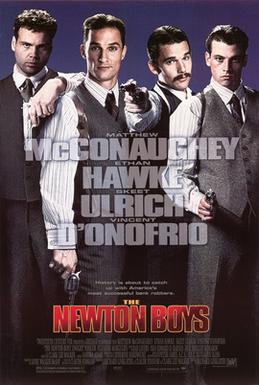
The Newton Boys is a 1998 American Western crime film directed by Richard Linklater, who co-wrote the screenplay with Claude Stanush and Clark Lee Walker. It is based on Stanush's 1994 book of the same name, which tells the true story of the Newton Gang, a family of bank and train robbers from Uvalde, Texas. The film stars Matthew McConaughey, who was actually born in Uvalde, Skeet Ulrich, Ethan Hawke, Vincent D'Onofrio, and Dwight Yoakam. It was filmed throughout Texas including the towns of Bertram, Austin, Bartlett, New Braunfels, and San Antonio.
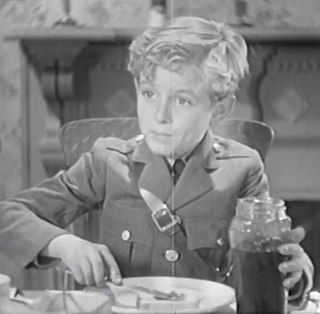
Wally Albright was an American actor, water sportsman, and businessman. As a child actor, he was best known for his role in the Our Gang film series.
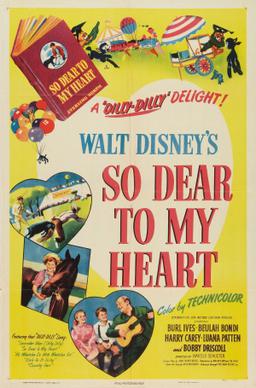
So Dear to My Heart is a 1948 American live-action/animated comedy-drama film produced by Walt Disney and released by RKO Radio Pictures. Its world premiere was in Chicago, Illinois, on November 29, 1948. Like 1946's Song of the South, the film combines animation and live action. It is based on the 1943 Sterling North book Midnight and Jeremiah. The book was revised by North to parallel the film's storyline amendments and then re-issued under the same title as the film.
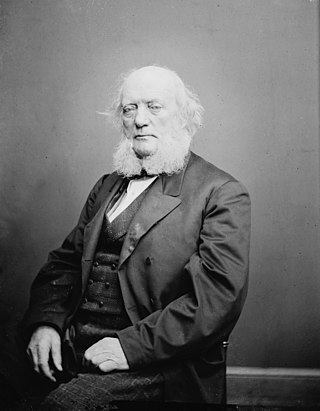
Chester Harding was an American portrait painter known for his paintings of prominent figures in the United States and England.

Break of Hearts is a 1935 RKO film starring Katharine Hepburn and Charles Boyer. The screenplay was written by the team of Sarah Y. Mason and Victor Heerman, with Anthony Veiller, from a story by Lester Cohen, specifically for Hepburn.
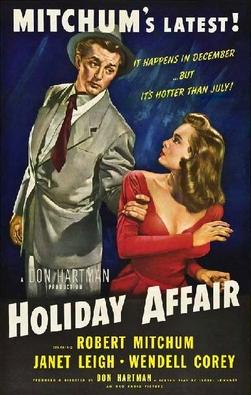
Holiday Affair is a 1949 American romantic comedy film directed and produced by Don Hartman and starring Robert Mitchum, Janet Leigh and Wendell Corey. It was based on the story Christmas Gift by John D. Weaver, which was also the film's working title. The film allowed Mitchum to briefly depart from his typical roles in film noir, Western films and war films, and his casting was intended to help rehabilitate his image following a notorious marijuana bust.

The Toast of New York is a 1937 American biographical film directed by Rowland V. Lee and starring Edward Arnold, Cary Grant, Frances Farmer, and Jack Oakie. The film is a fictionalized account of the lives of financiers James Fisk and Edward S. Stokes. The screenplay was based on the book The Book of Daniel Drew by Bouck White and the story "Robber Barons" by Matthew Josephson.

A Thousand Acres is a 1997 American drama film directed by Jocelyn Moorhouse and starring Michelle Pfeiffer, Jessica Lange, Jennifer Jason Leigh and Jason Robards.

This Property Is Condemned is a 1966 American drama film directed by Sydney Pollack and starring Natalie Wood, Robert Redford, Kate Reid, Charles Bronson, Robert Blake and Mary Badham. The screenplay, inspired by the 1946 one-act play of the same name by Tennessee Williams, was written by Francis Ford Coppola, Fred Coe and Edith Sommer. The film was released by Paramount Pictures.

Johnny Got His Gun is a 1971 American independent epic anti-war film written and directed by Dalton Trumbo, in his directorial debut, based on his 1938 novel of the same name. The film stars Timothy Bottoms, Kathy Fields, Marsha Hunt, Jason Robards, Donald Sutherland and Diane Varsi. It was Trumbo's first and only directorial effort.
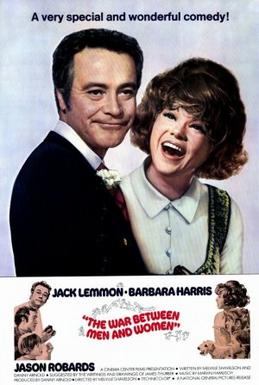
The War Between Men and Women is a 1972 American comedy-drama film directed by Melville Shavelson and starring Jack Lemmon, Barbara Harris, and Jason Robards. The film is based on the writings of humorist James Thurber, and was released by Cinema Center Films. It features animated cartoons interspersed in the story based on Thurber's works. Shavelson was creator of the 1969 Thurber-based television series My World and Welcome to It. The screenplay is by Shavelson and by Danny Arnold, who also worked on the 1969 series. Lisa Gerritsen, who plays Linda Kozlenko in the film, previously co-starred in My World and Welcome to It as Lydia Monroe.

Finders Keepers is a 1984 American comedy film directed by Richard Lester and starring Michael O'Keefe, Beverly D'Angelo, Brian Dennehy, and Louis Gossett Jr., with an early performance by Jim Carrey. The film was adapted from Charles Dennis' 1974 novel The Next-to-Last Train Ride. The film opened on May 18, 1984, earning $865,207 during its first weekend in 753 theaters.
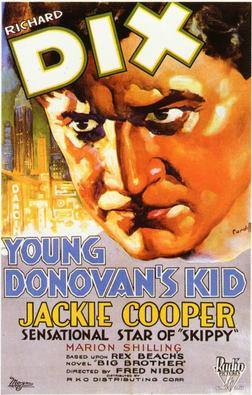
Young Donovan's Kid is a 1931 American pre-Code melodrama film directed by Fred Niblo, from a screenplay by J. Walter Ruben, based upon the short story, Big Brother, by Rex Beach. It was a remake of a 1923 silent film of the same, produced by Famous Players–Lasky, and directed by Allan Dwan. This version starred Richard Dix, Jackie Cooper, and Marion Shilling. The film also featured Boris Karloff in a supporting role as "Cokey Joe".
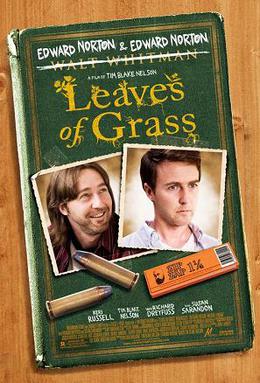
Leaves of Grass is a 2009 American black comedy film written and directed by Tim Blake Nelson. It stars Edward Norton as twin brothers, alongside Richard Dreyfuss, Nelson, Susan Sarandon, Melanie Lynskey and Keri Russell.

Outlaw Trail: The Treasure of Butch Cassidy is a 2006 American adventure film, produced and directed by Ryan Little. It is loosely based on legends arising from the fate of real-life Western outlaw Butch Cassidy, the alias of Robert LeRoy Parker, whose gang robbed trains and banks in the 1890s. Cassidy fled to South America in 1901, where he is believed to have died in 1908.

Little Men (1940) is an American film based on the novel Little Men (1871) by Louisa May Alcott. Norman Z. McLeod directed the film. It is the second sequel to Little Women after Little Men

The Kansan is a 1943 Western film directed by George Archainbaud. The film is also known as Wagon Wheels in the United Kingdom.

A Lost Lady is a 1924 American drama film directed by Harry Beaumont and written by Dorothy Farnum. It is based on the 1923 novel A Lost Lady by Willa Cather. The film stars Irene Rich, Matt Moore, June Marlowe, John Roche, Victor Potel, and George Fawcett. The film was released by Warner Bros. on December 18, 1924.
Fangirls is an Australian stage musical with book, music and lyrics by Yve Blake. It concerns 14-year-old Edna, a diehard fan of the biggest boy band in the world, True Connection, and its lead singer Harry. It was inspired by interviews with hundreds of teenage fangirls.



















